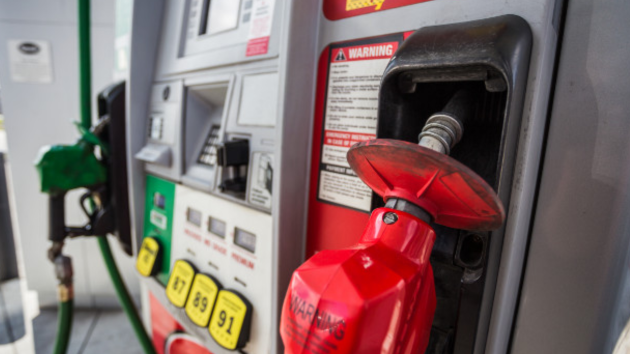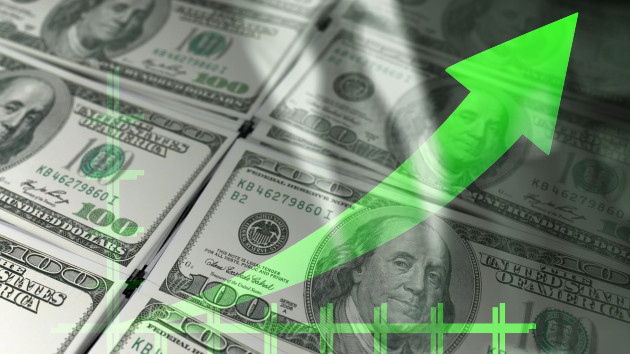How your old cellphones and laptops can power new electric vehicles
Written by ABC Audio ALL RIGHTS RESERVED on February 13, 2023

(NEW YORK) — That old laptop, cellphone and TV remote may have a newfound purpose: powering the next generation of electric vehicles.
Luxury brand Audi recently partnered with Redwood Materials, a battery recycling startup, to collect rechargeable batteries found in everyday consumer devices — phones, hearing aides, electric toothbrushes and video game controllers. At least 10 Audi dealerships in the U.S. have so far opted into the burgeoning program, with more expected to join in the coming months.
Devices dropped off at dealerships are shipped to Redwood’s Nevada facilities for the sorting, recycling and remanufacturing of cobalt and lithium — two minerals required for EV battery production.
Audi is the first automaker to partner with Redwood to “support the collection of household lithium-ion batteries alongside larger EV battery recycling efforts,” according to a spokesperson.
Five percent of vehicles sold in the U.S. last year were EVs, a percentage that will rapidly increase as less expensive models arrive on the market and Americans become more familiar with charging. Growing interest in EVs has accelerated the push for valuable minerals like cobalt, nickel and lithium that are extracted from overseas mines at heavy environmental and humanitarian costs.
Recycling of consumer batteries can reduce the forced extraction of precious minerals and create a domestic supply that meets the government’s and automakers’ EV goals, according to Alexis Georgeson, Redwood’s vice president of government relations and communications.
“The U.S. is one of the largest consumers of lithium-ion devices,” she told ABC News. “Consumers are itching to get rid of these devices. There’s a tremendous opportunity for recycling.”
According to Redwood’s data, Americans throw out 150 million phones each year and less than 5% of devices containing lithium-ion are recycled. Historically, consumers had to pay to ship their used devices to recycling centers, resulting in the “abysmal” recycling rate, Georgeson said. (Redwood offers free shipping but does not reimburse consumers for the cost of the device.)
Redwood says its “technology can recover, on average, more than 95% of materials like nickel, cobalt, copper, aluminum, lithium and graphite in a lithium-ion battery. These materials can then go directly back into the supply chain to make batteries for new electric vehicles and energy storage products.” The company announced on Thursday that it had secured a $2 billion Department of Energy loan to expand its campus and scale domestic battery cell production in the U.S.
Redwood also recycles “end-of-life” battery packs from automakers like Toyota, Ford, Volvo, Volkswagen and Audi. Lithium, nickel and cobalt are extracted and remanufactured into cathode — a core component of an EV battery. Tesla battery supplier Panasonic has partnered with Redwood for remanufactured anode foil — which Redwood makes from scrap taken from Tesla’s Gigafactory in Nevada.
“There is increased demand for automakers to get recycled content into their vehicles,” said Georgeson. “The new EV tax credit is contingent on automakers having domestically sourced their metals — whether that’s mined domestically or recycled domestically. The devices collected could end up back in a new Audi.”
The battery is the most expensive part of an electric vehicle, accounting for 30% to 40% of the cost, according to Arun Kumar, a managing director at consulting firm AlixPartners. Raw materials needed for an EV can total $6,719 compared to $2,423 for internal combustion vehicles.
According to a recent AlixPartners survey, 97% of battery electric vehicle (BEV) owners are likely to buy another one.
“Once people buy EVs the loyalty rate is off the charts,” he told ABC News. “There’s no chance these consumers are going back to vehicles with internal combustion engines.”
The U.S. does not want to depend on foreign nations like China to satiate its green ambitions, he argued, adding that it would be “bad” if the U.S. lags in battery capacity and minerals as sales of EVs take off. Recycled materials, however, can only meet 20% of the global demand for cobalt and lithium, Kumar noted.
China owns the largest share of lithium and nickel, according to AlixPartners data, and also controls mines in the Democratic Republic of Congo, which accounts for three-quarters of the world’s mined cobalt supply.
“We have to find mines locally in North America,” Kumar said. “The whole earth has enough materials to support growth in EVs. The extraction of minerals can be safer — we don’t want to degrade the environment.”
Boosting ownership of EVs and building out the nation’s charging infrastructure have become top priorities for the Biden administration. In August the president signed the Inflation Reduction Act, which incentivizes automakers to buy batteries and materials from domestic suppliers and U.S. allies. Half of all new vehicles sold in the U.S. by 2030 will be zero-emissions cars and trucks, according to Biden’s target.
Automakers like Mercedes, Ford, General Motors, Volkswagen and Hyundai are now investing billions of dollars in battery factories in the U.S. The industry is planning to spend an estimated $1.2 trillion through 2030 to develop and build new battery-powered vehicles, according to the Alliance for Automotive Innovation.
Gernot Wagner, a climate economist and professor at Columbia Business School, applauds Redwood for trying to tap into this “large reservoir” of old devices and helping Americans “Marie Kondo” their homes and apartments to better the environment.
“There’s so much demand for these metals right now. Companies are looking anyplace for them,” he told ABC News. “It’s certainly true that many of us have too many old electric devices sitting around that we no longer use and don’t really know what to do with.”
Whether other companies adopt Redwood’s business model will depend on two factors, Wagner pointed out.
“If it pays, there will surely be new entrants. If it doesn’t — or this company is so successful to corner the entire market — there won’t be others,” he said. “Moving from internal combustion engines to EVs is fundamentally a good thing. We’ve got to make EVs work while also minimizing other impacts on the planet. It’s better to recycle than mine from scratch.”
Copyright © 2023, ABC Audio. All rights reserved.
 KVSP
KVSP 




